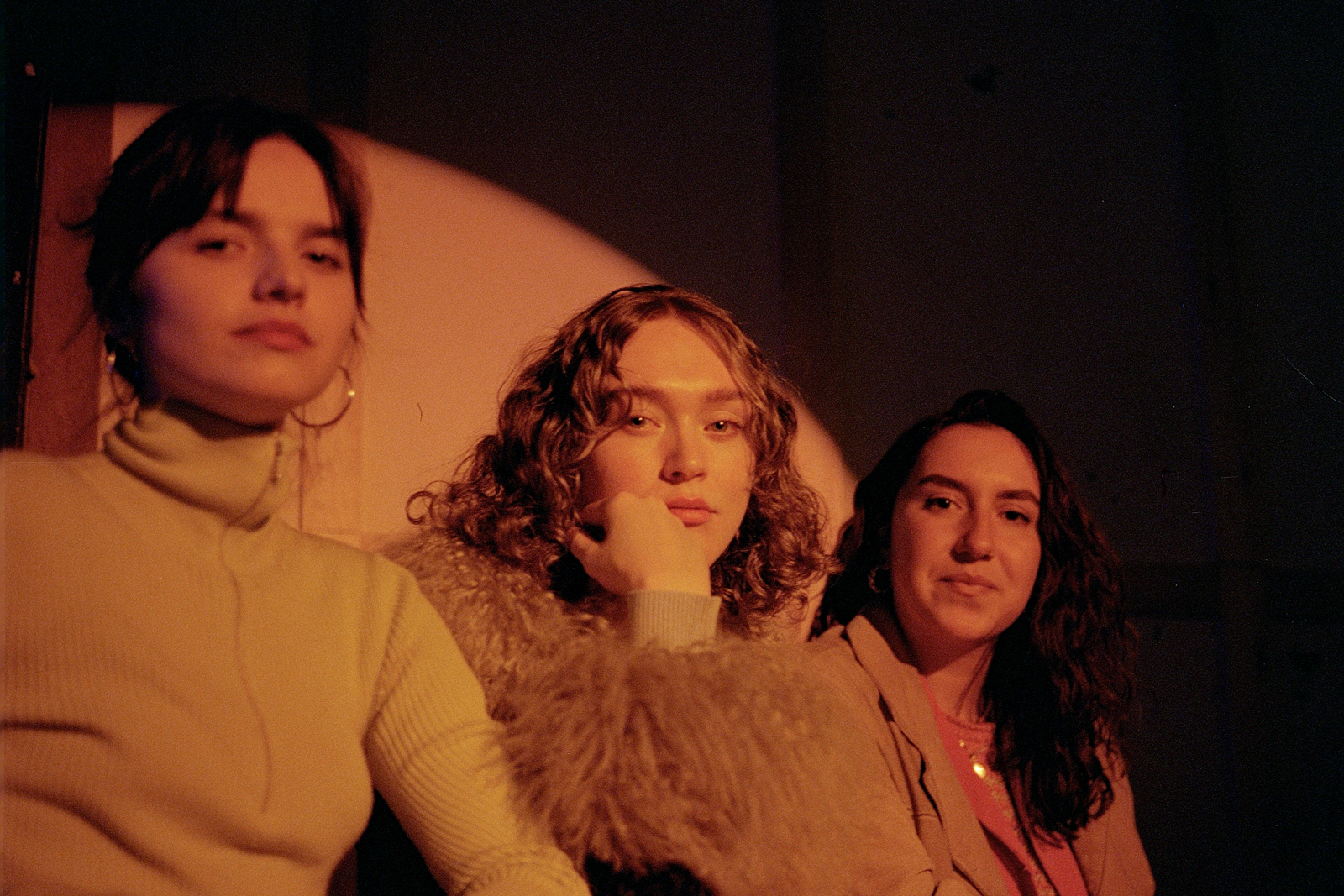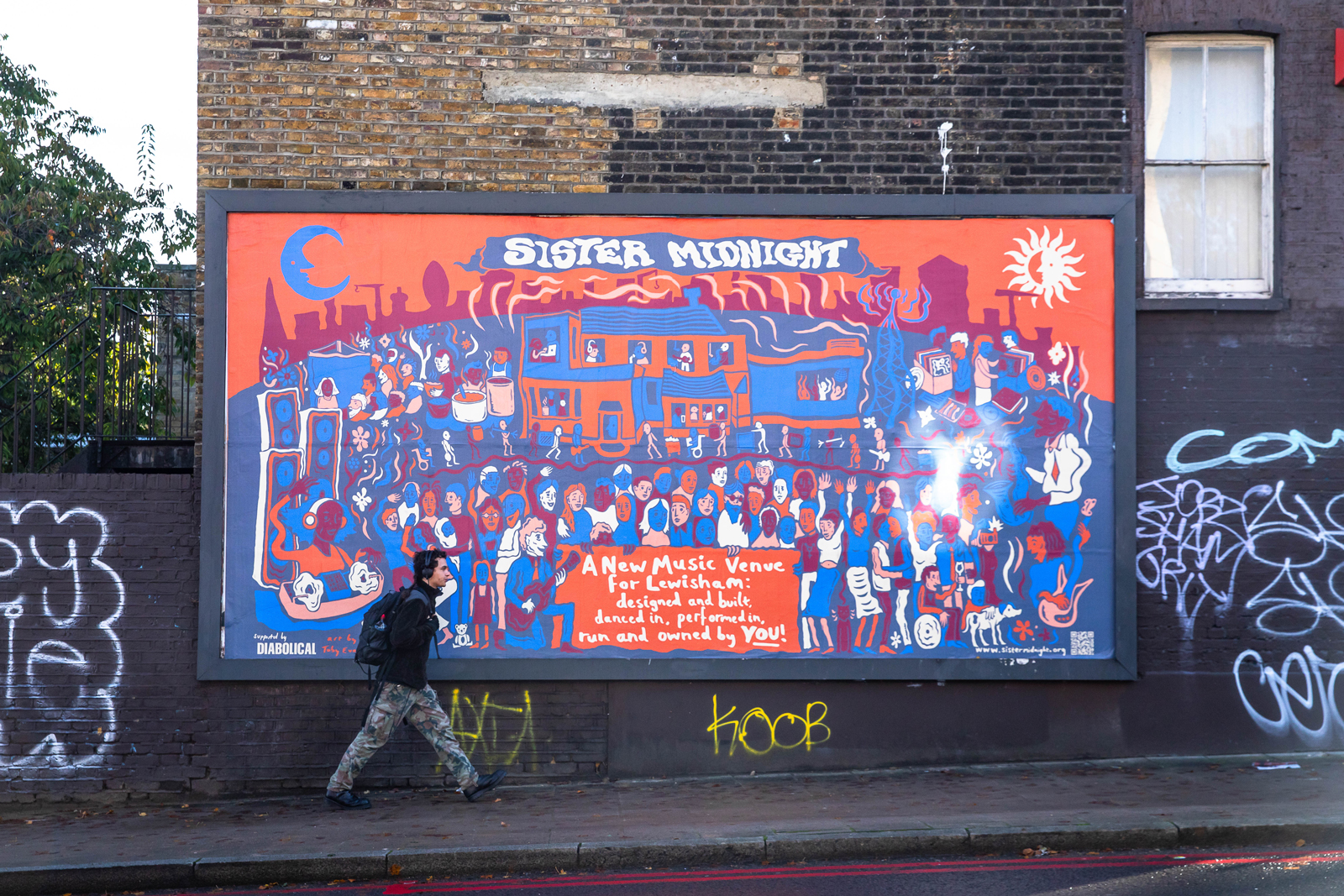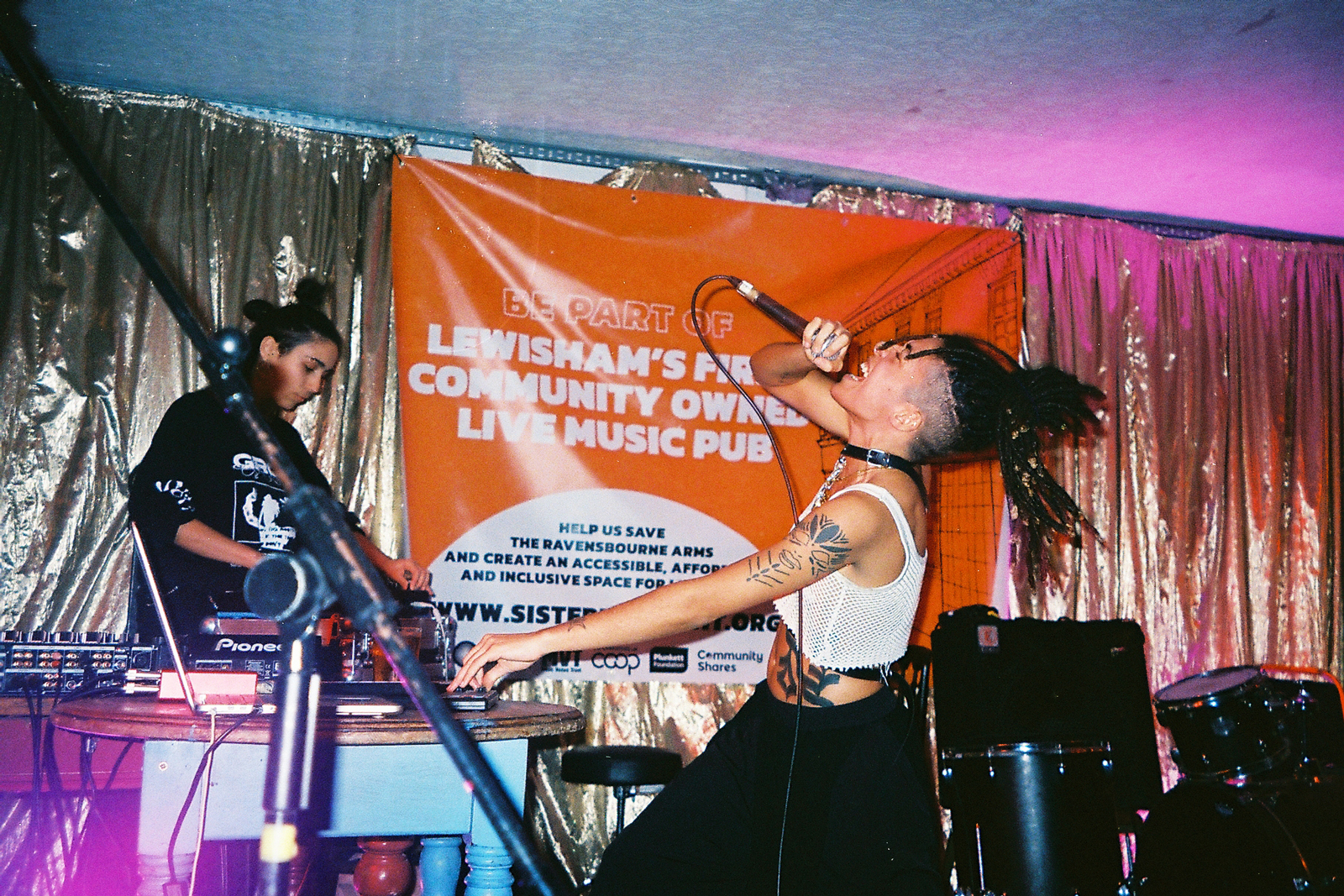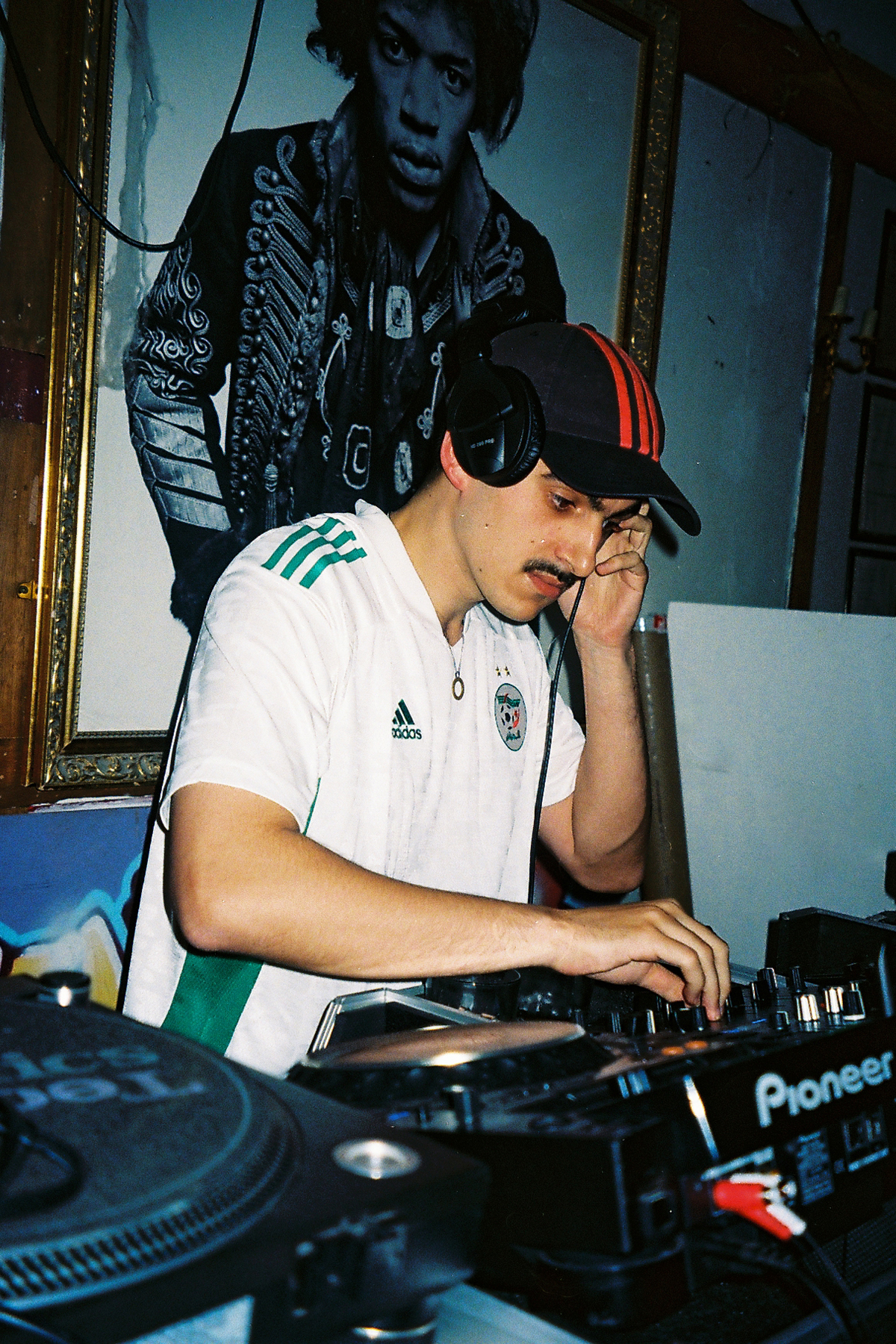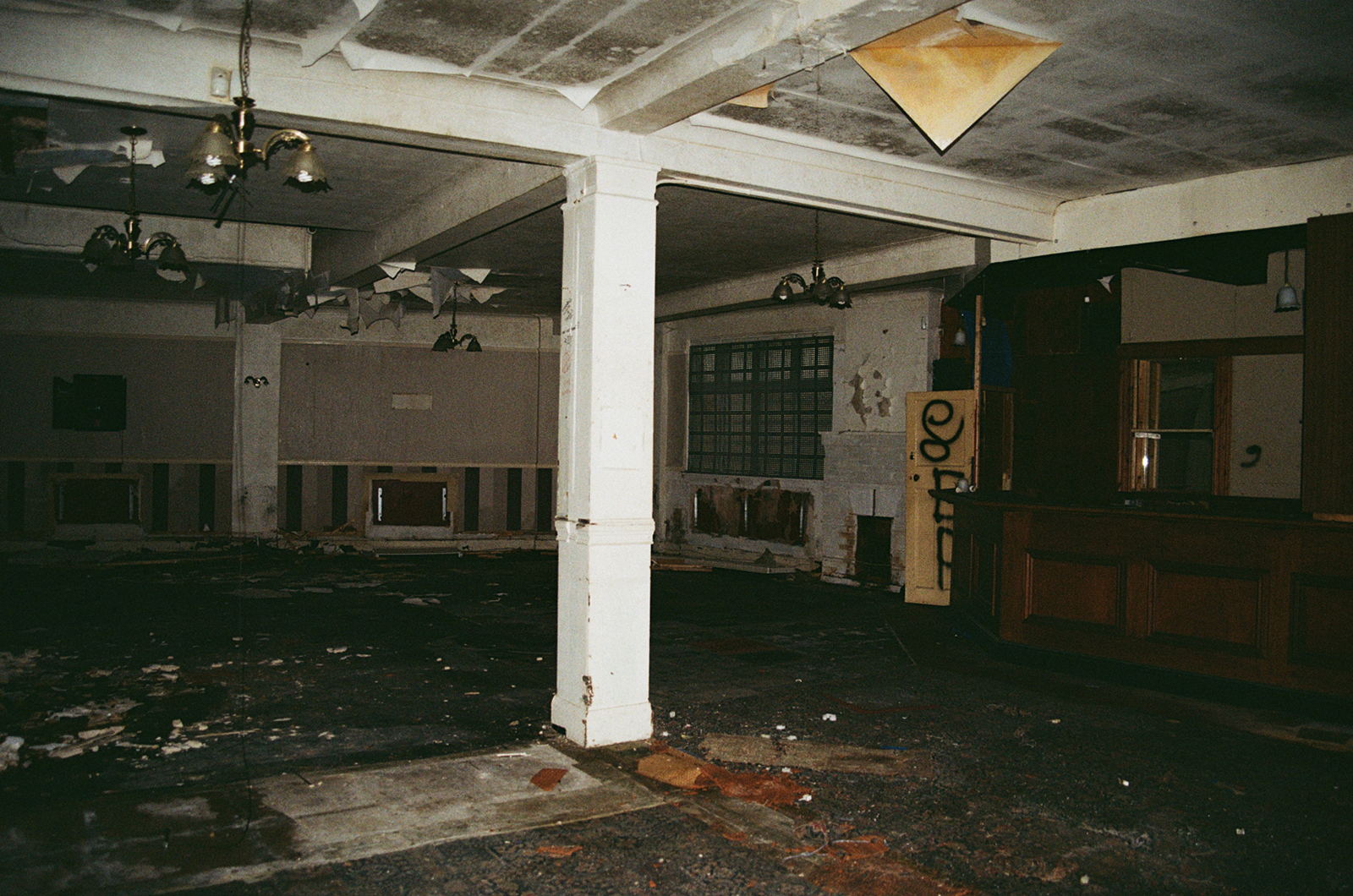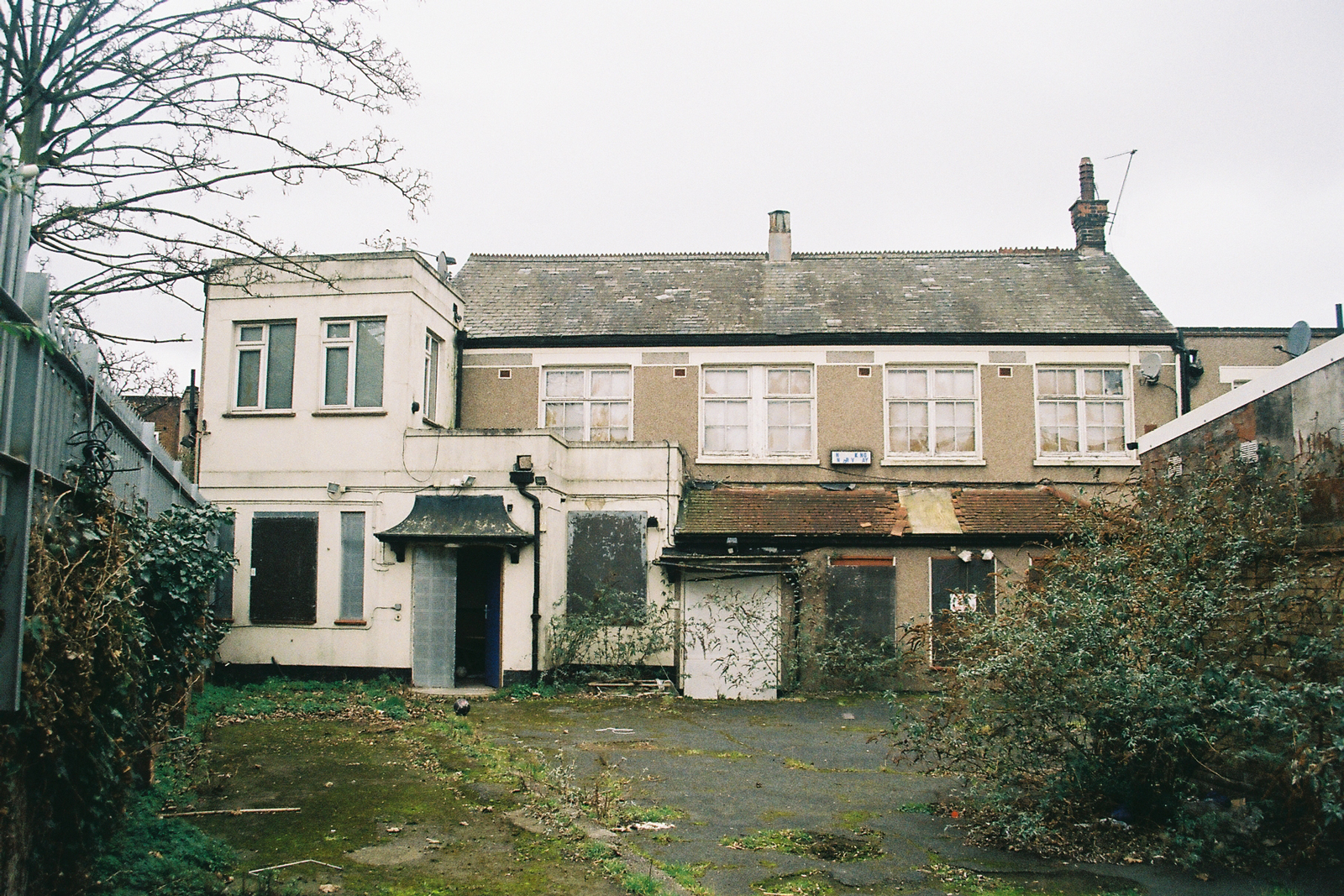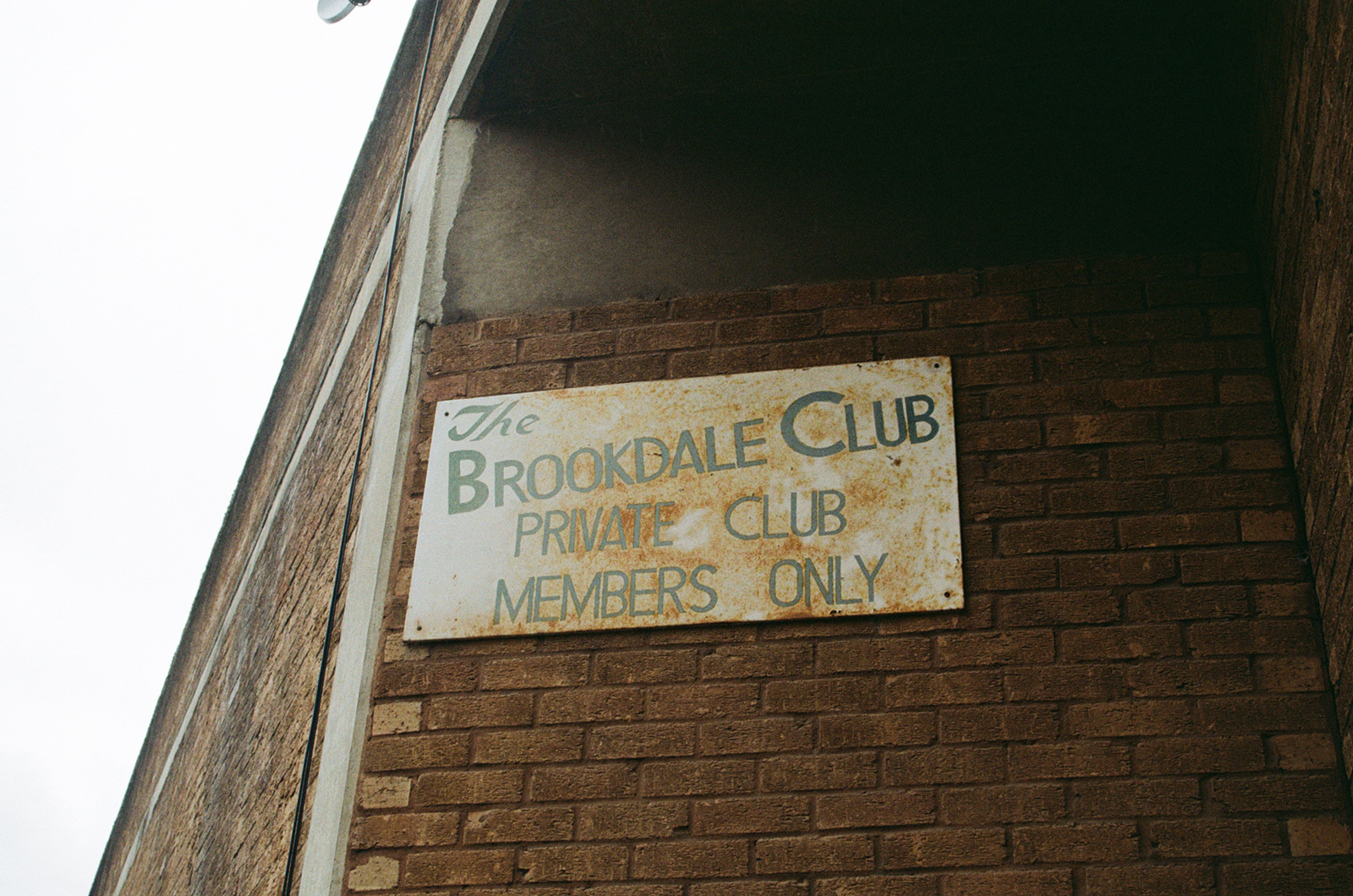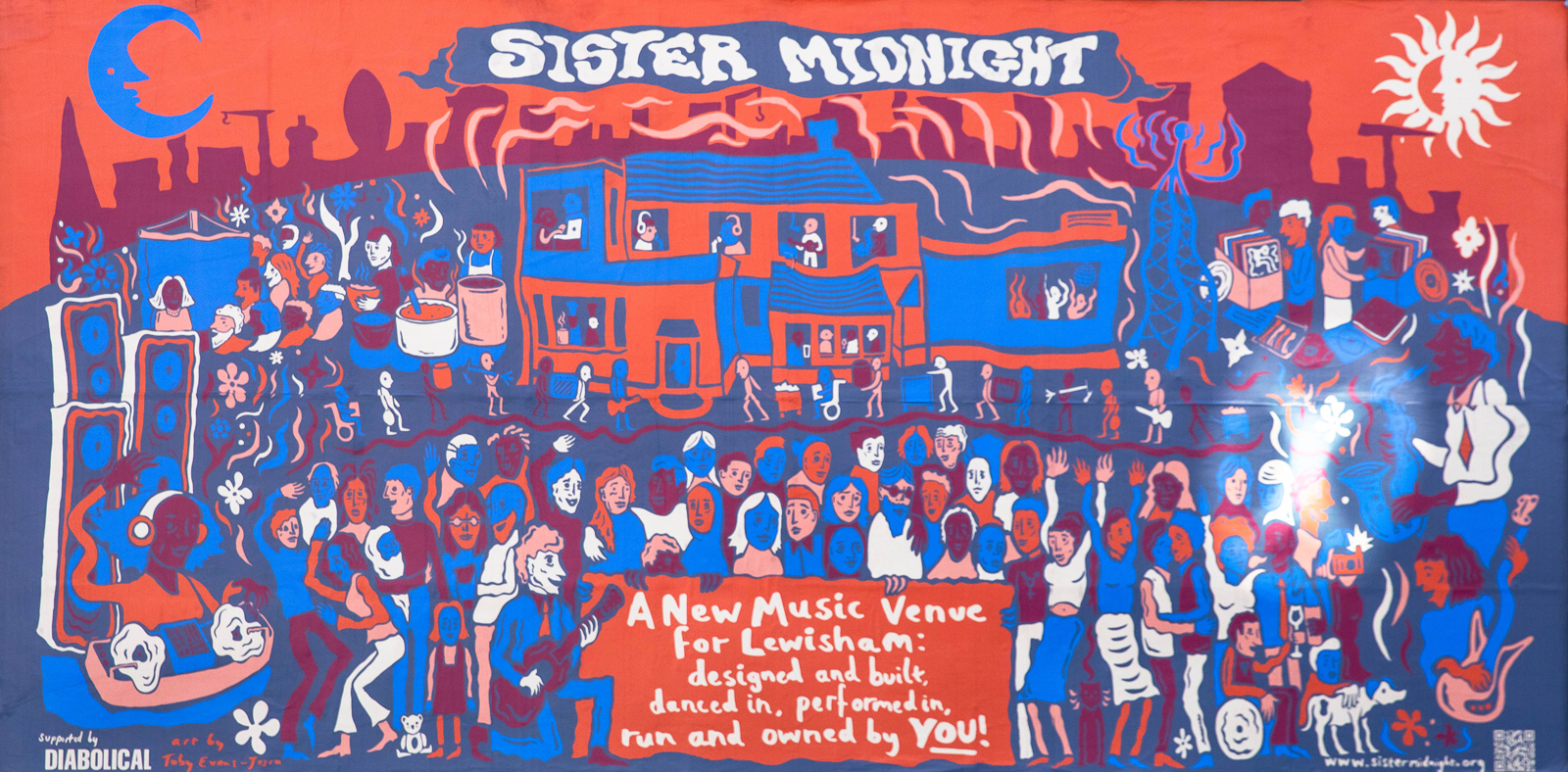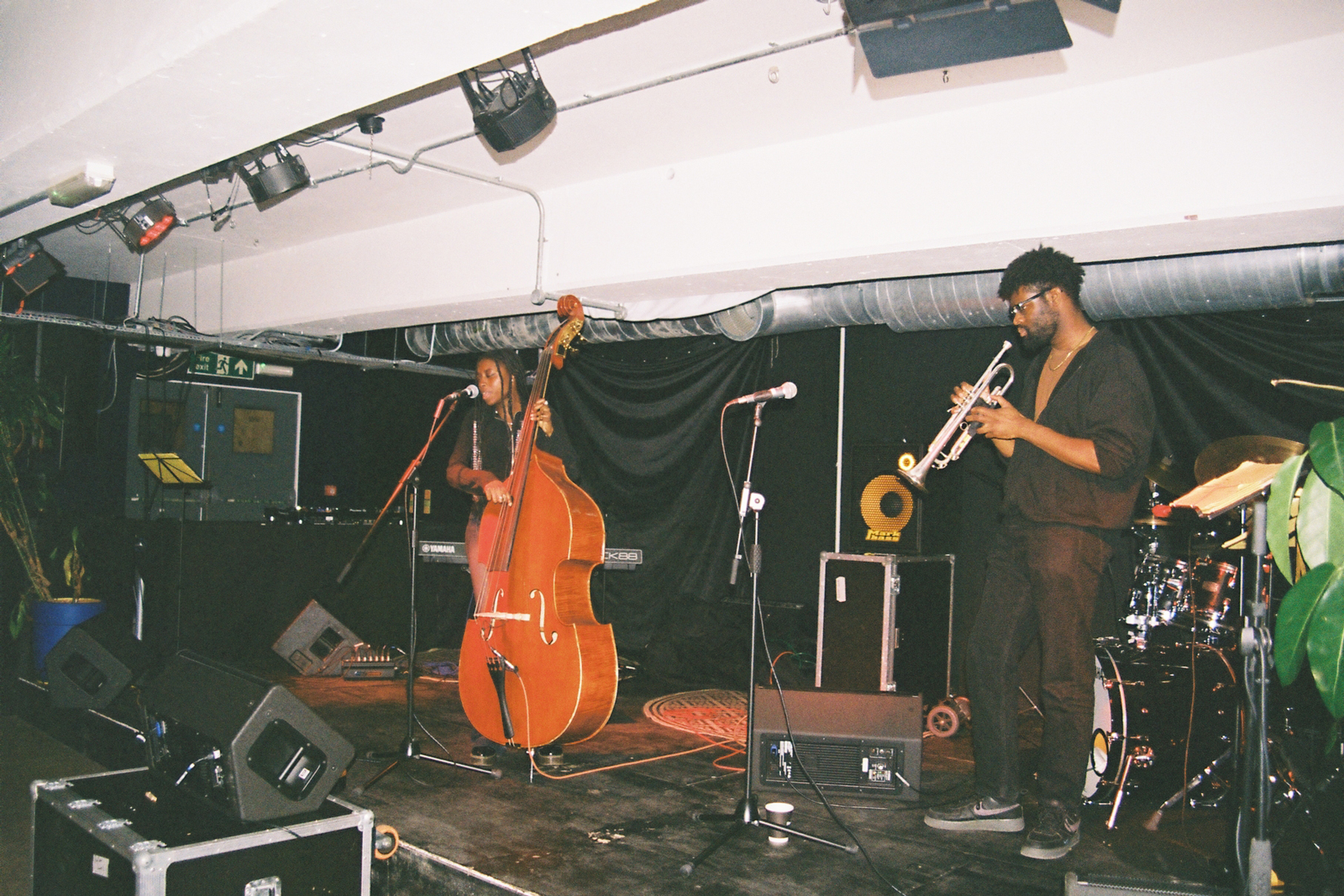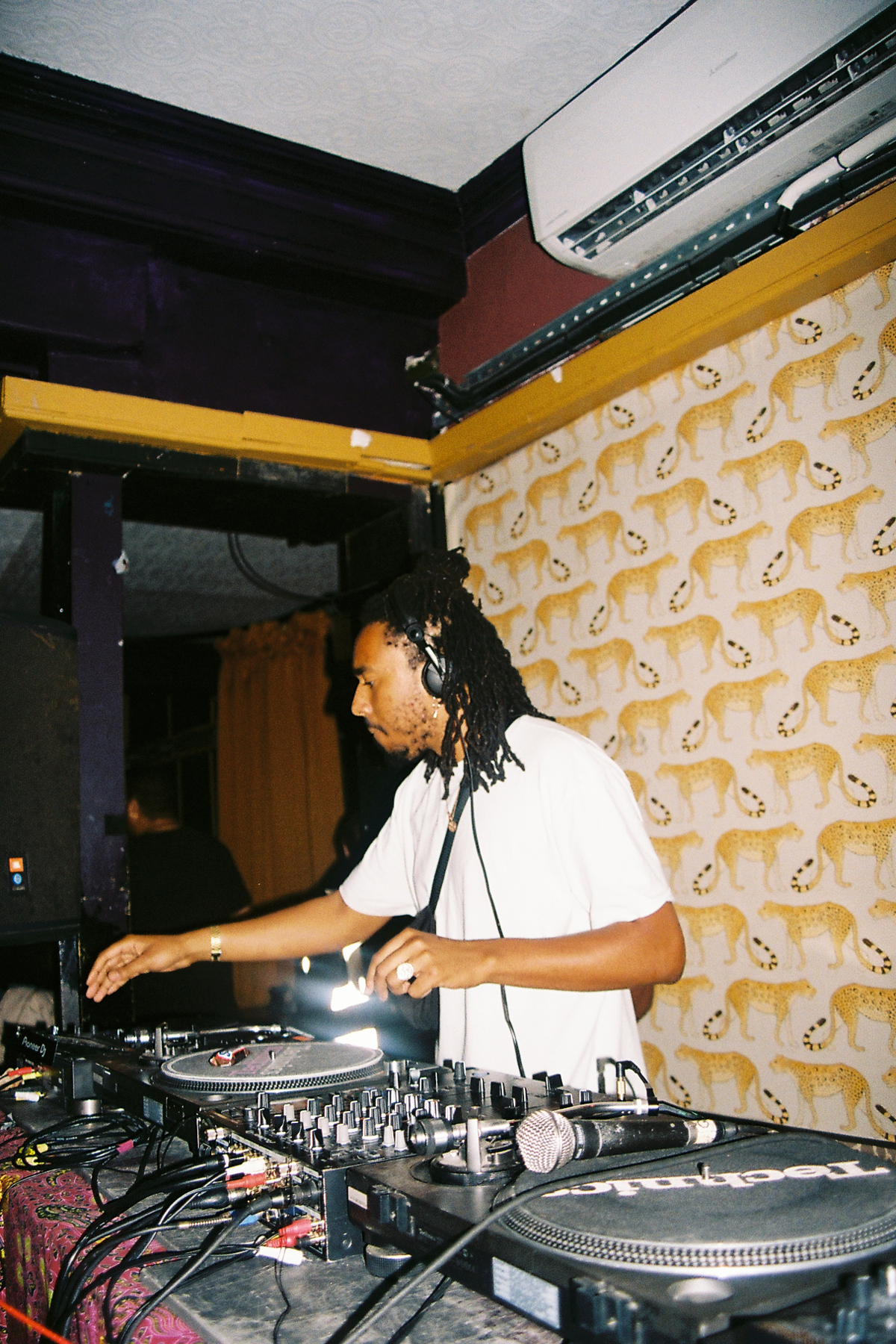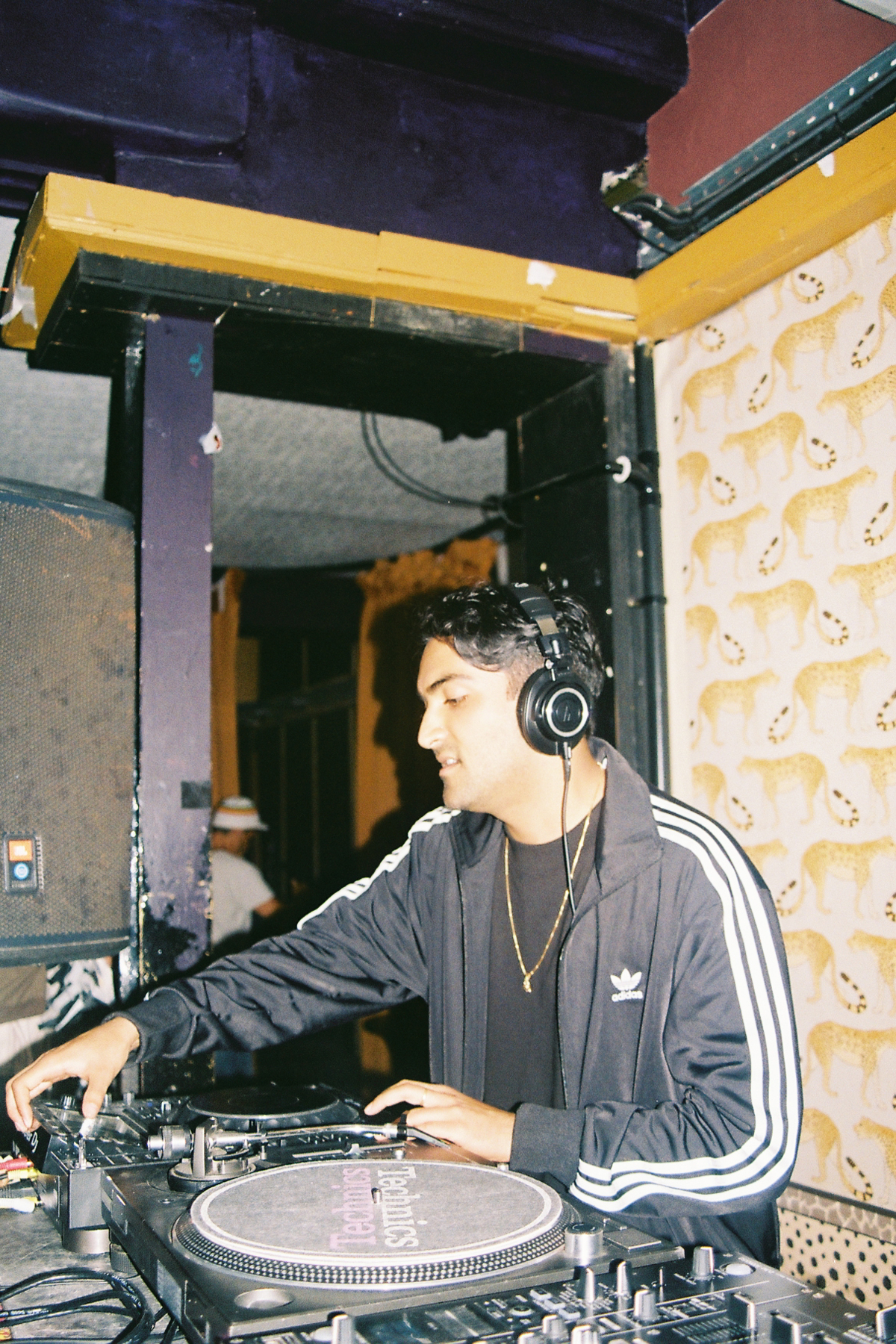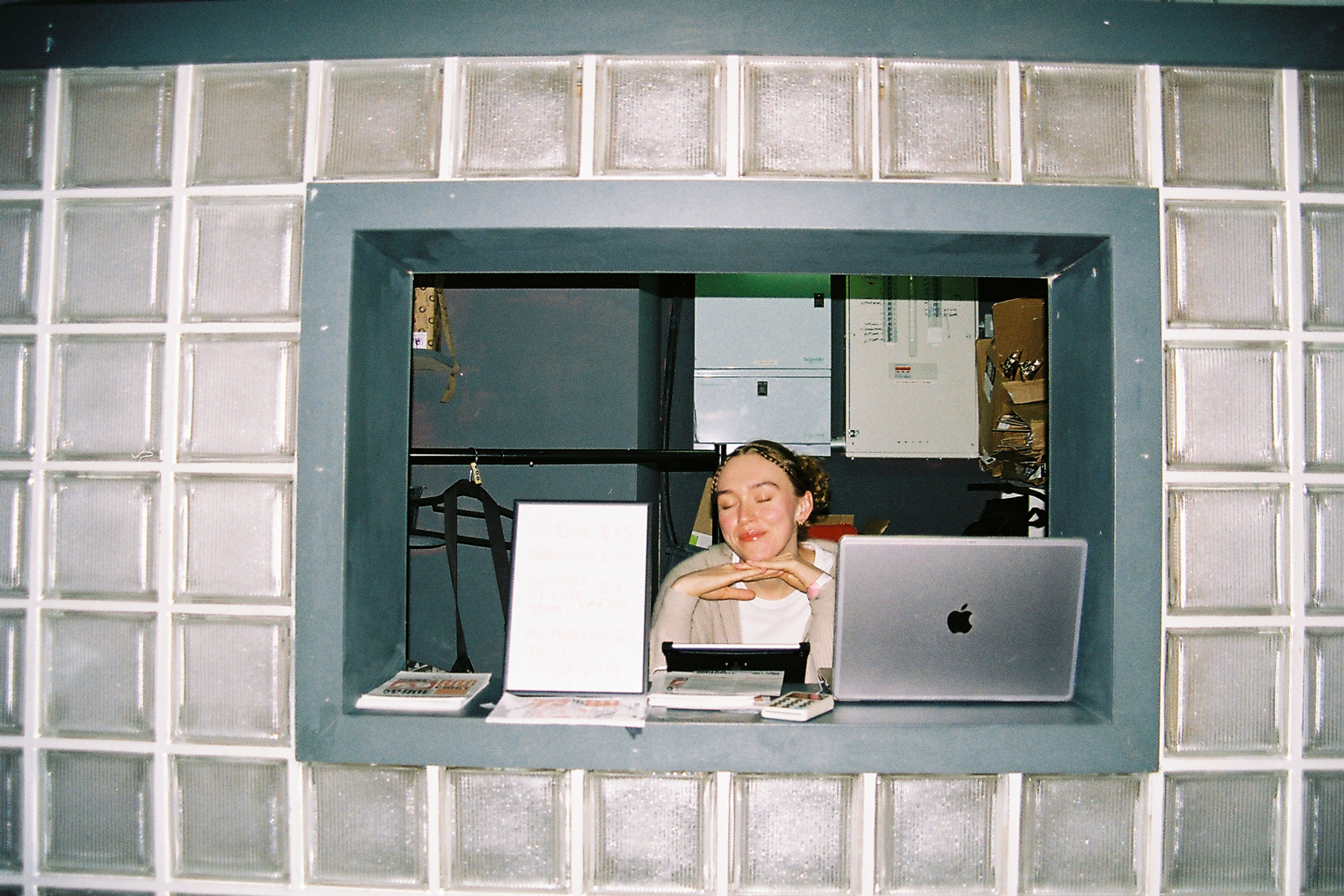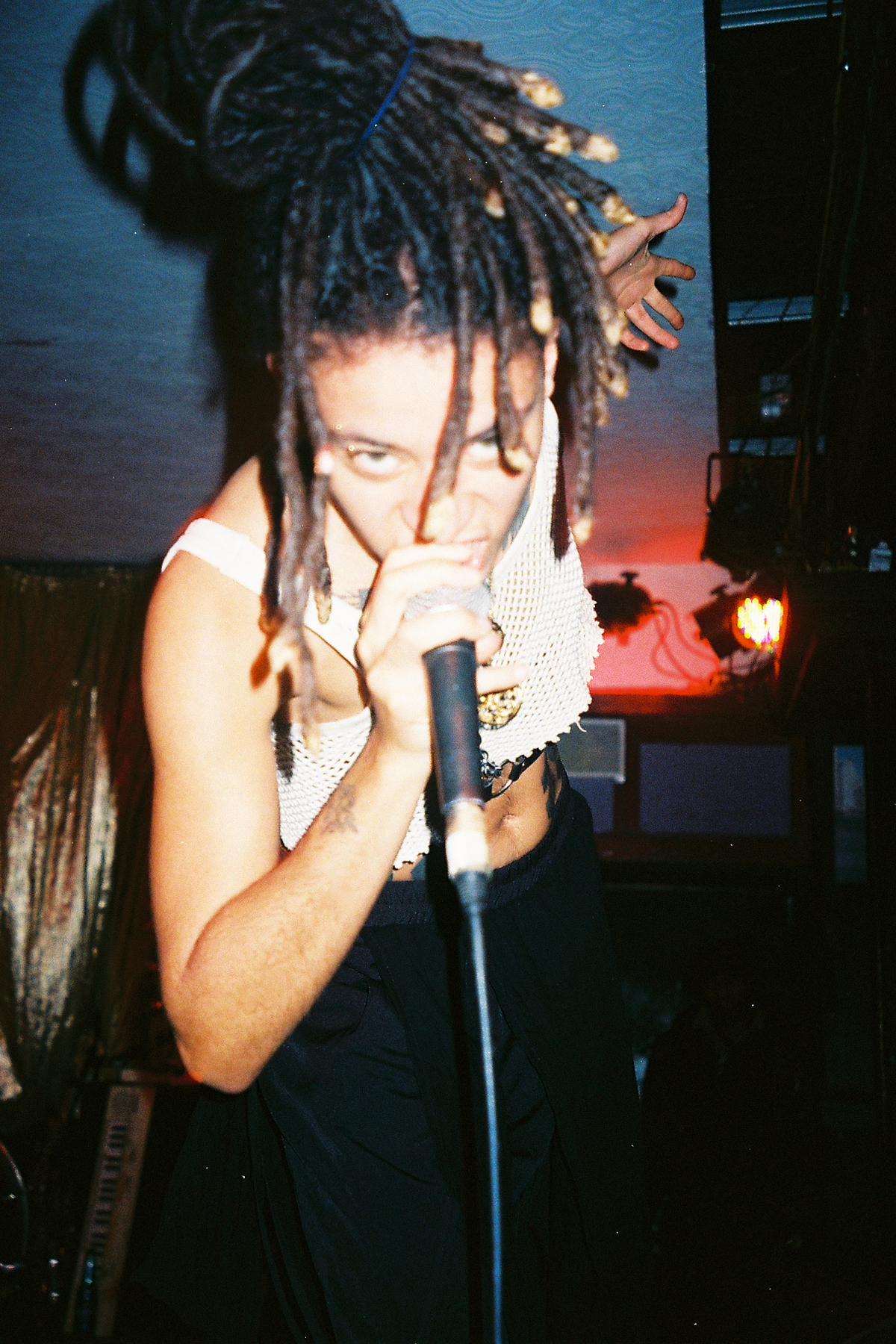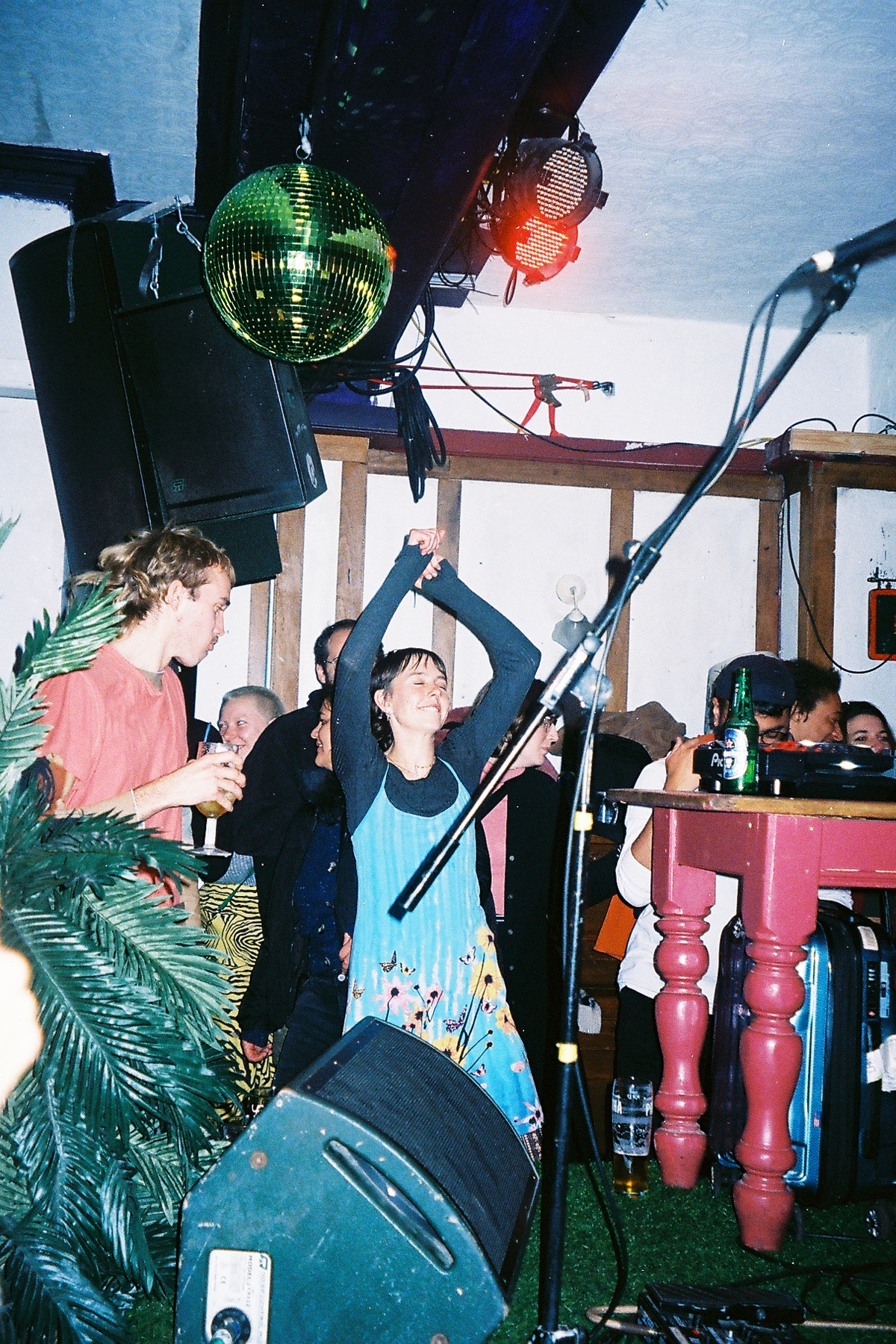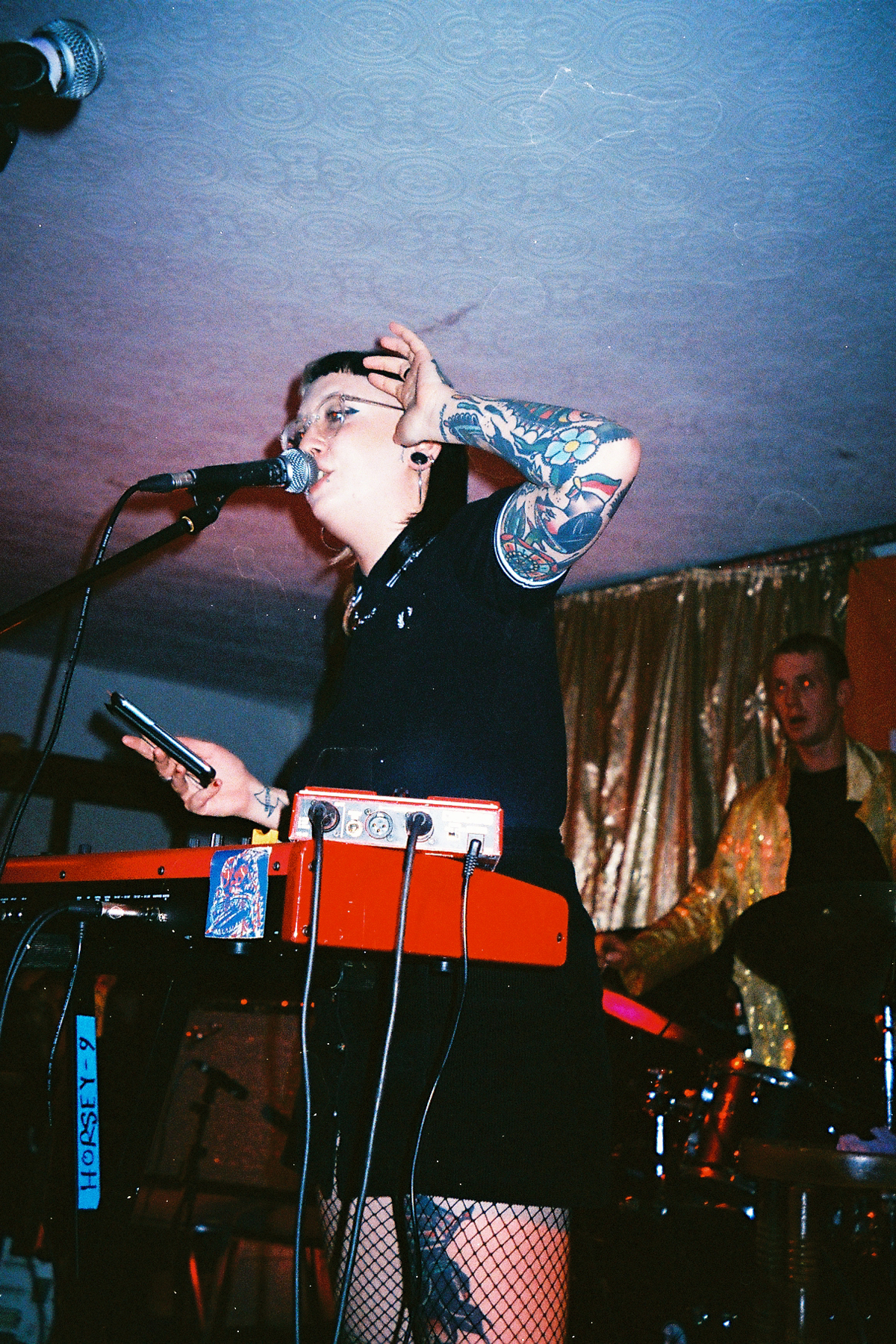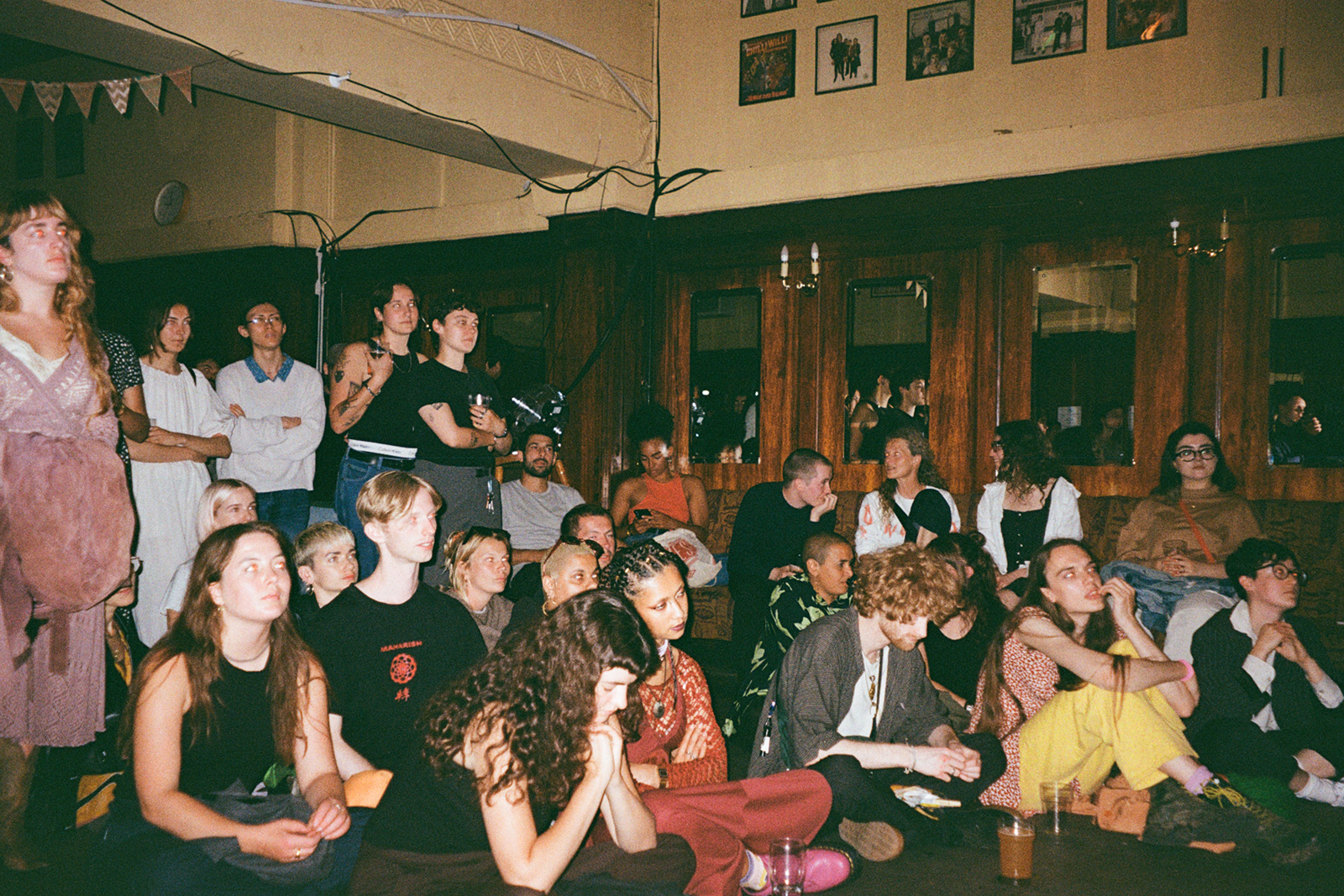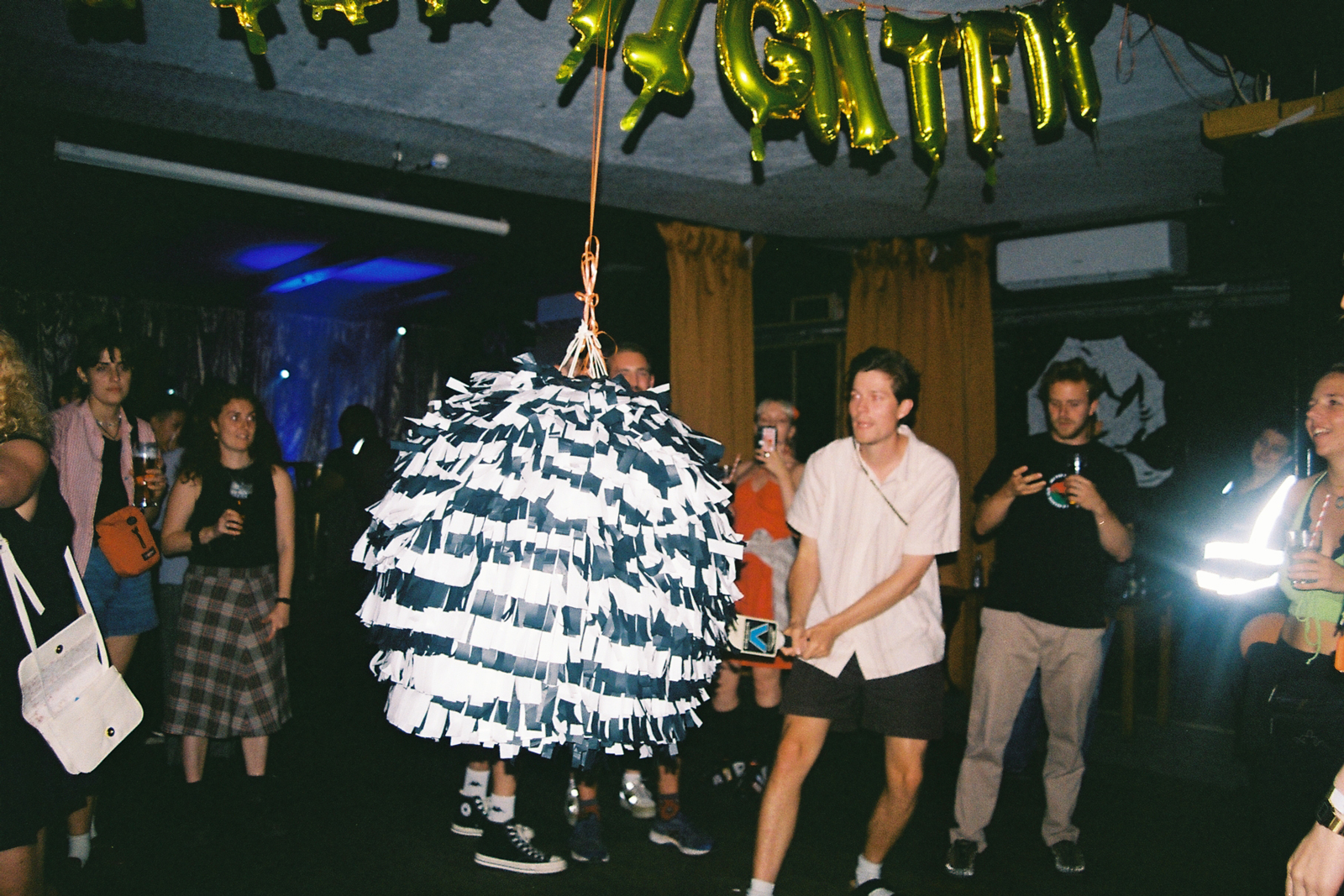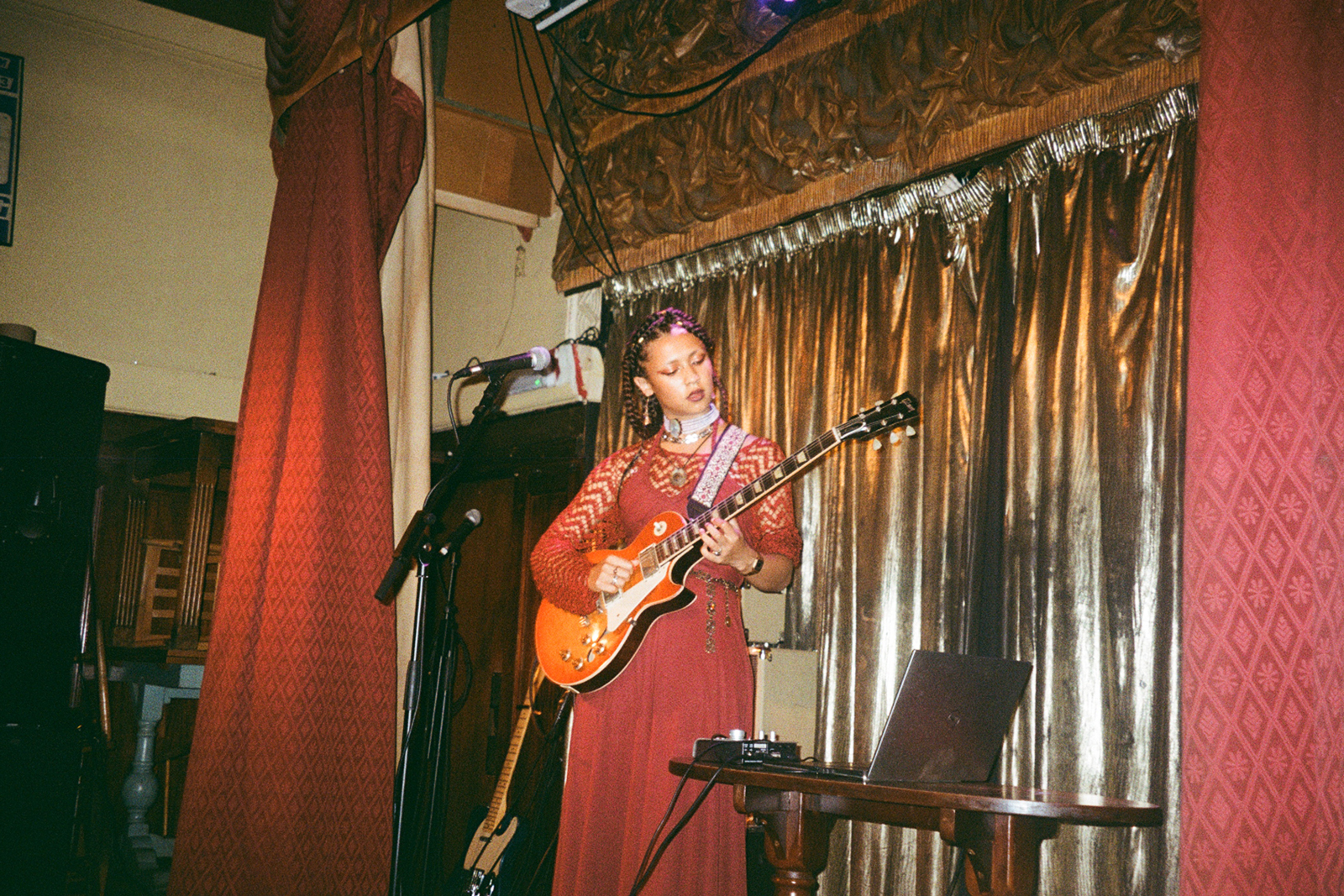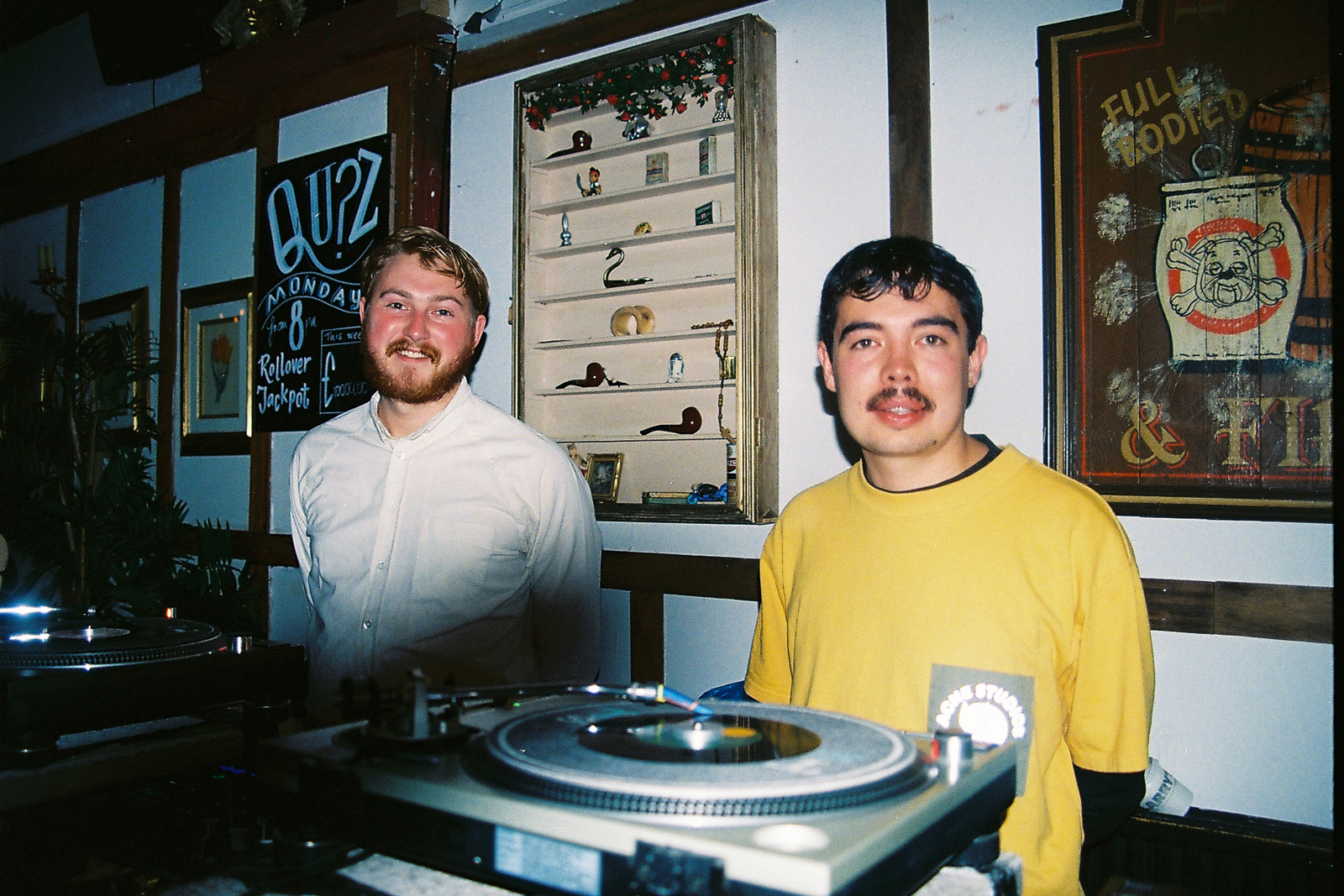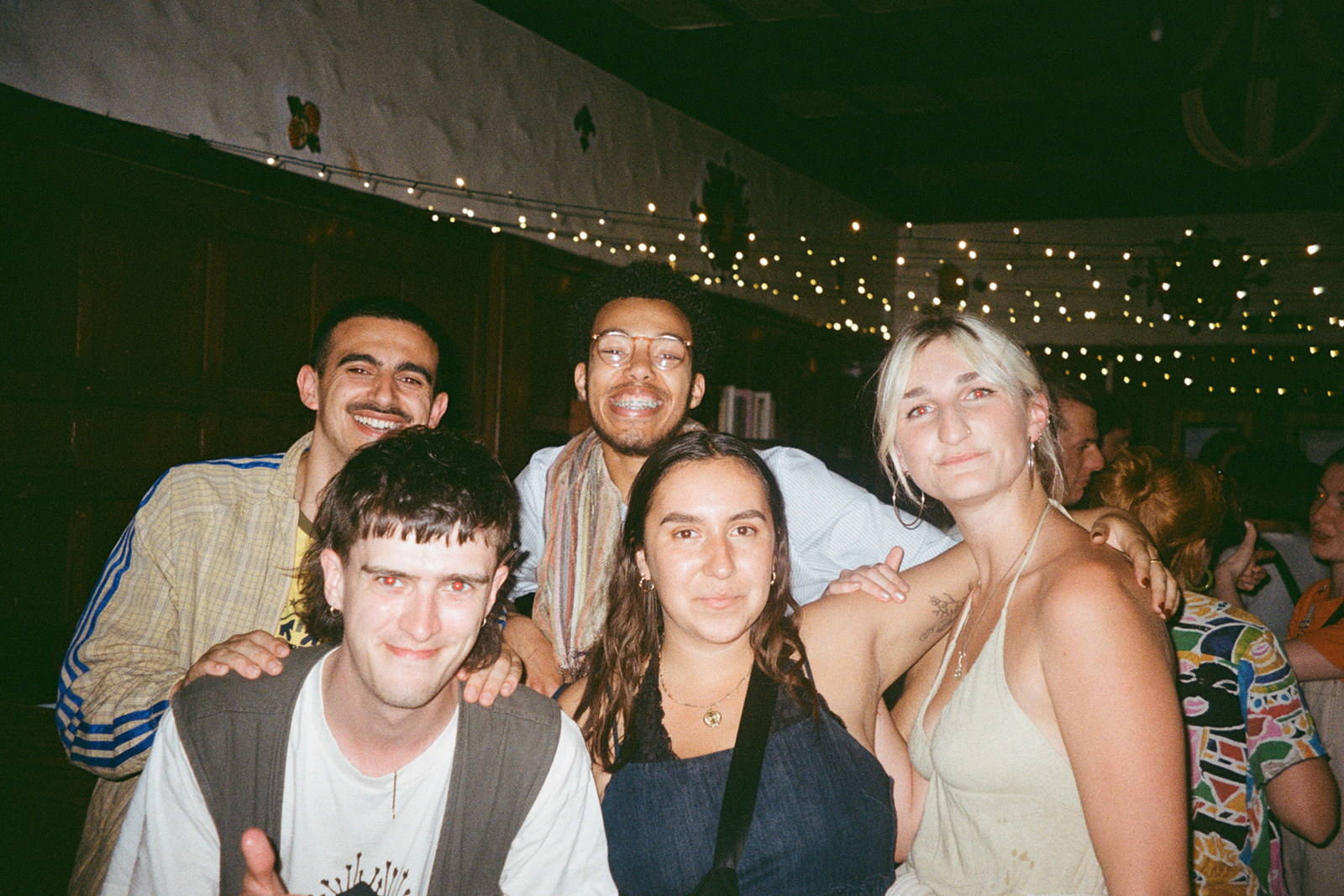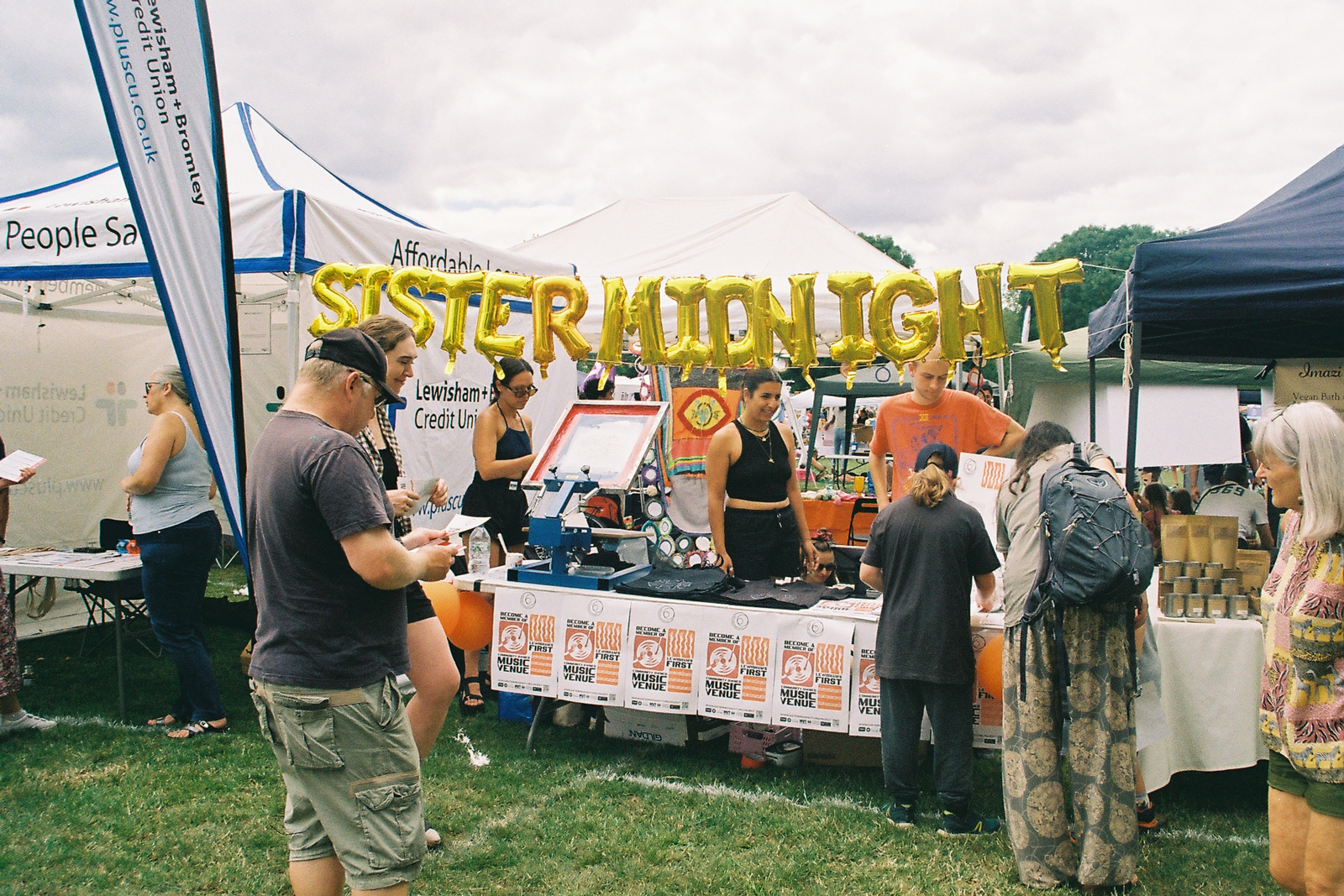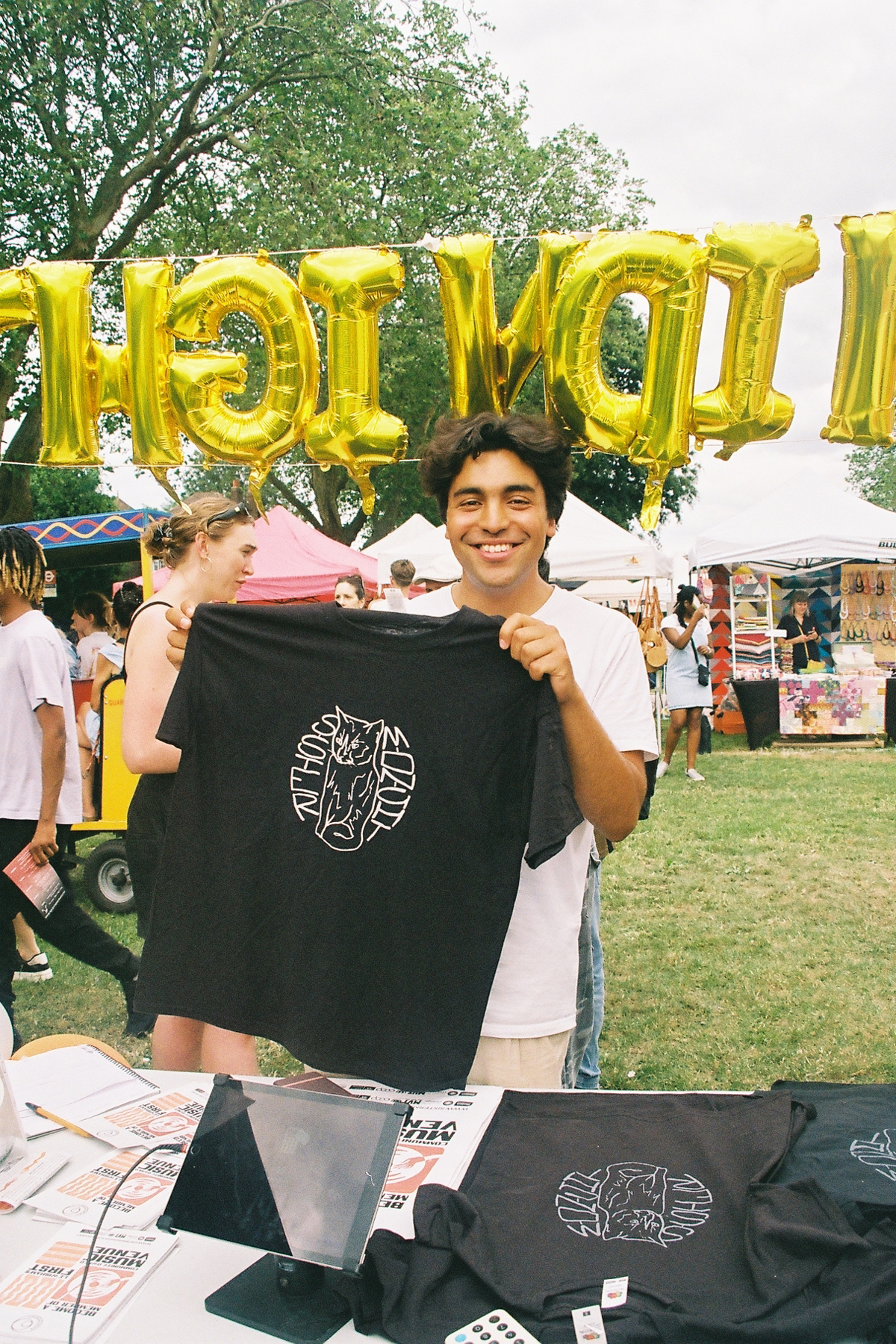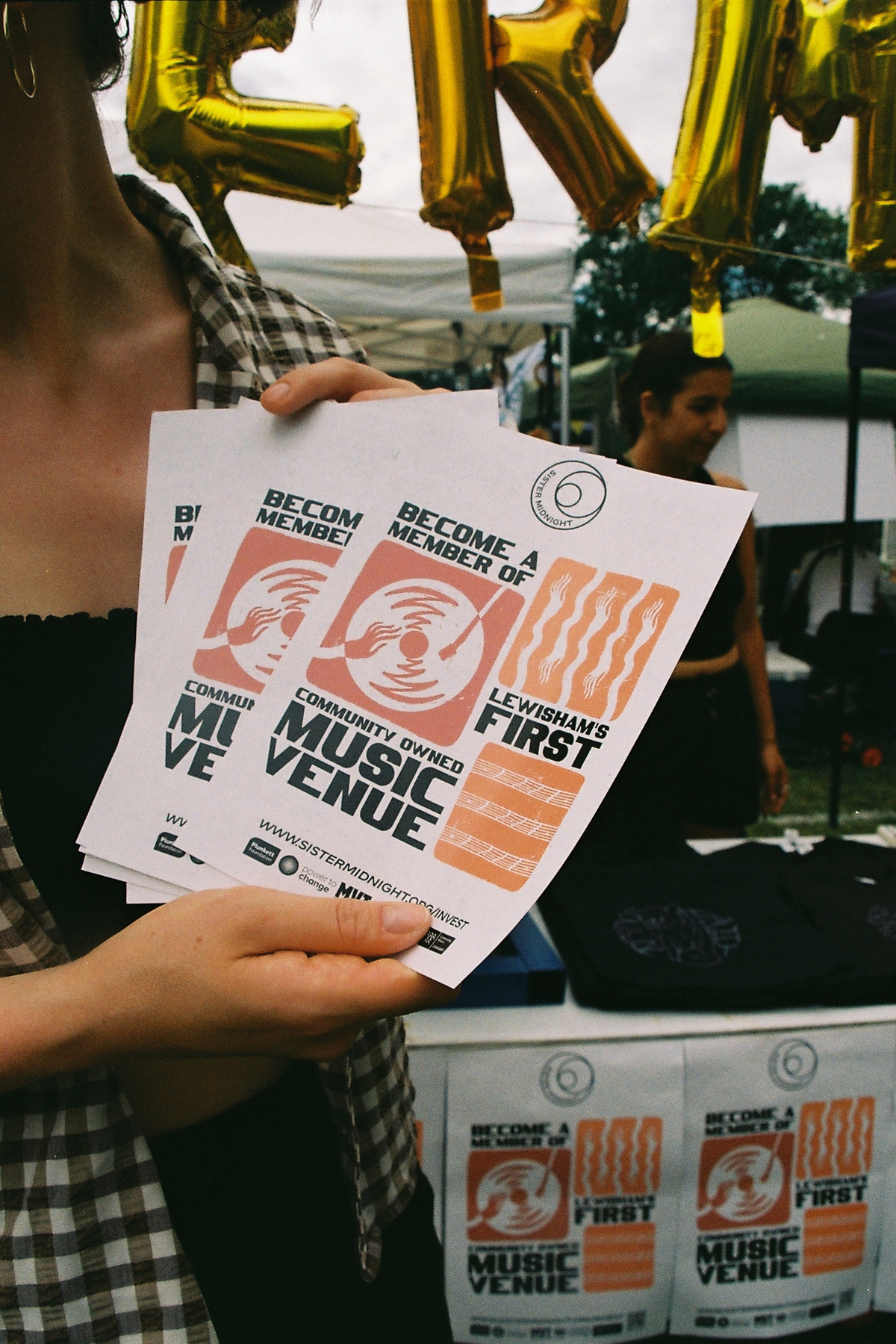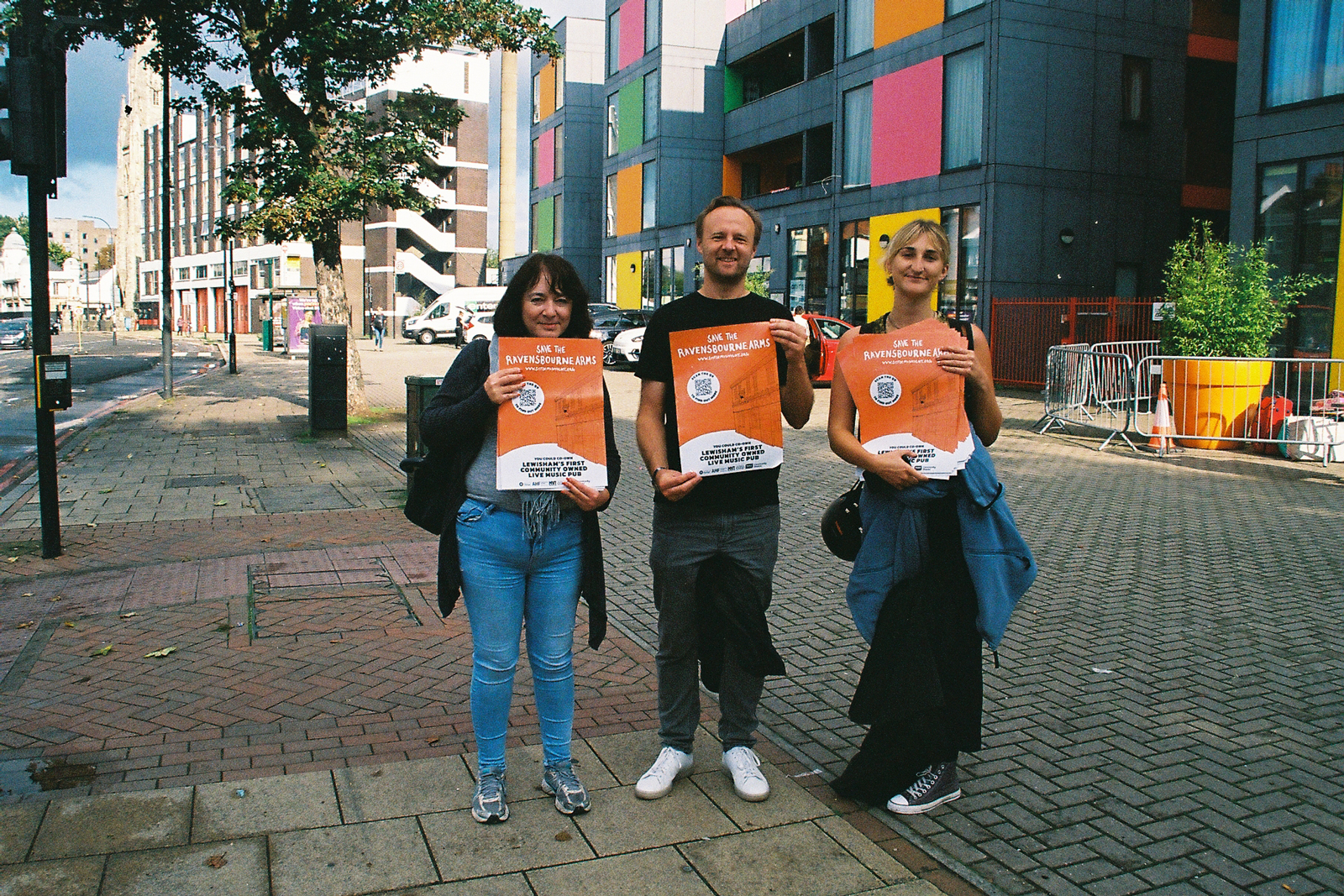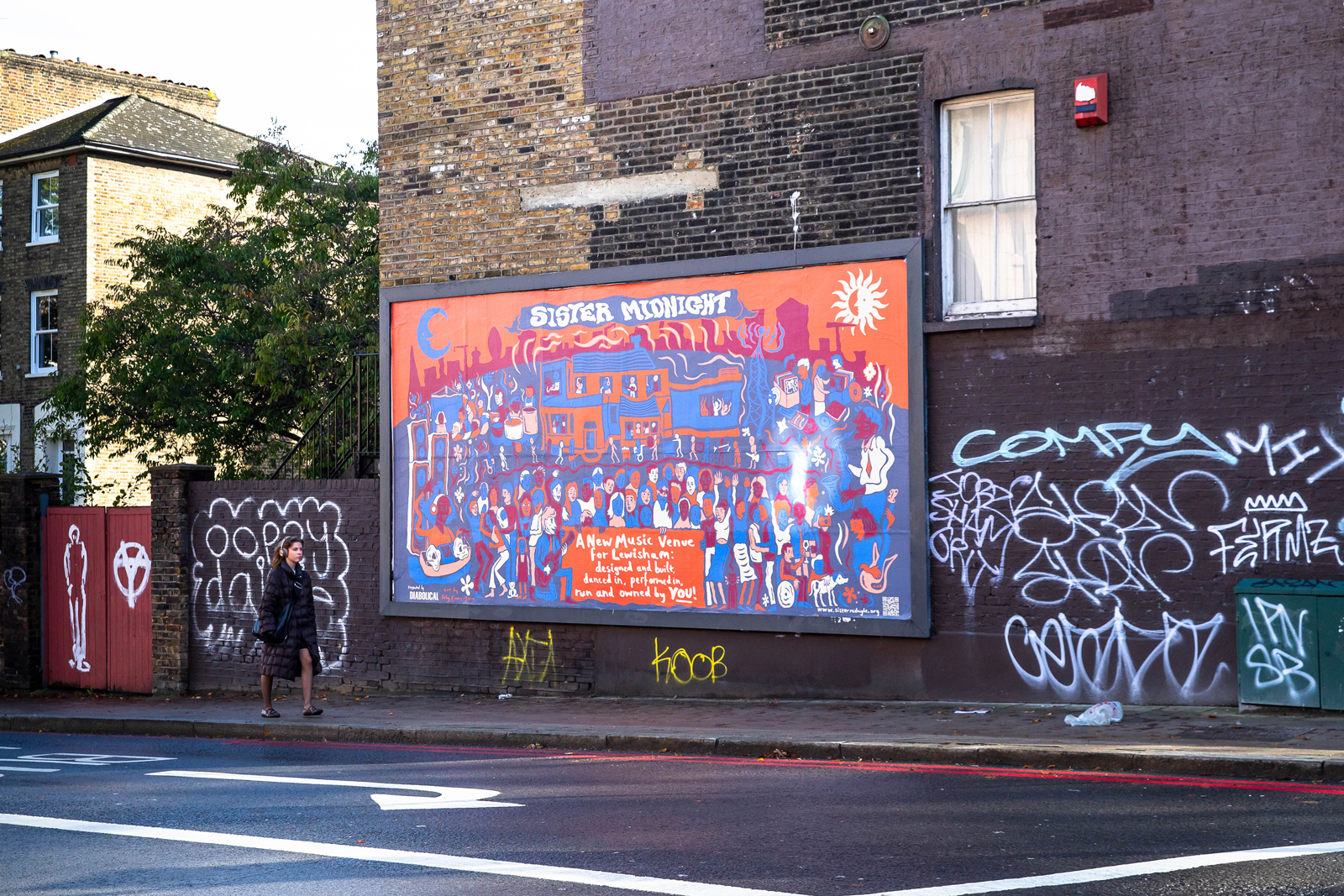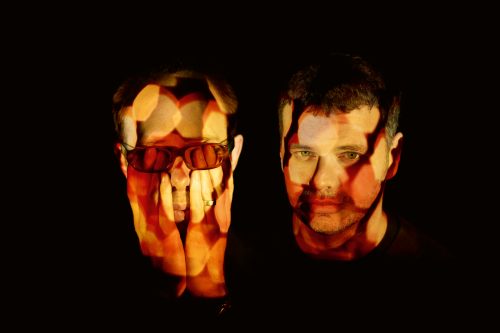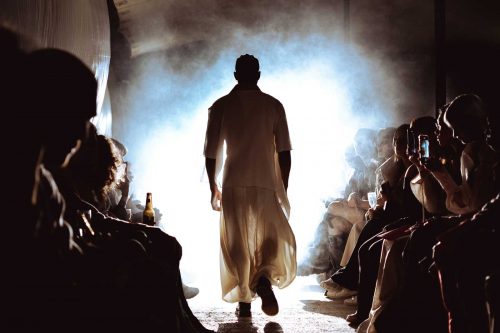Partnerships
Sister Midnight are making space in South East London
The Sister Midnight posters going up around South East London depict a lively world under a cityscaped skyline where people are dancing and cooking, DJing and watching music – and carrying kit into and out of a busy building. The words at the bottom sum it up: A New Music Venue for Lewisham: designed and built, danced in, performed in, run and owned by YOU!
It’s an invitation to find out more about a new community-generated cultural space. And beneath the artwork is a powerful story of making space and dreaming big, which led earlier this year to not-for-profit co-operative Sister Midnight acquiring a ten-year rent-free lease on The Brookdale Club, a disused Working Mens Club in Catford, in the London borough of Lewisham. It will be the first community-owned music venue in the area and it is led by three women under 30 years old: co-founders Lenny Watson and Sophie Farrell, and musician Lottie Pendlebury of Goat Girl.
The plan is to turn the currently derelict building and private yard into a 300-capacity venue, a community lab, a bar, workspace and kitchen with upstairs studios. Whilst all of the above is dependent on planning permission, one aspect is already in the world – Sister Midnight FM broadcasting under the tagline ‘from Catford to the world’.
02.11.23
Words by


